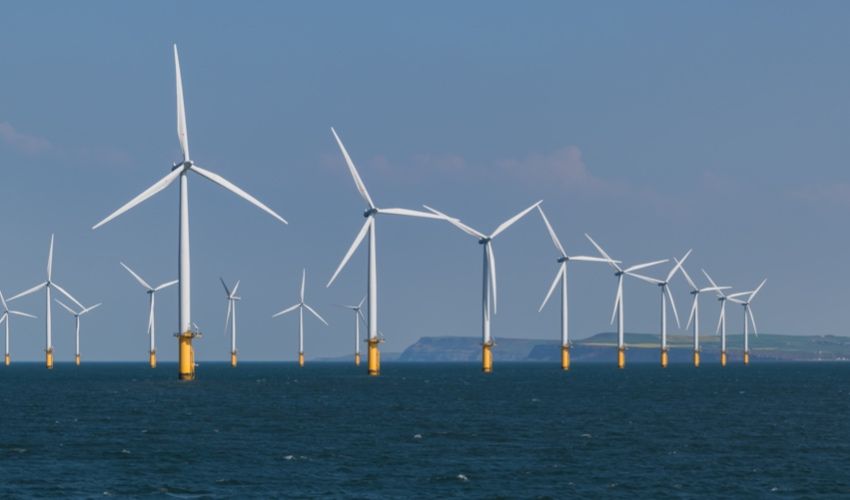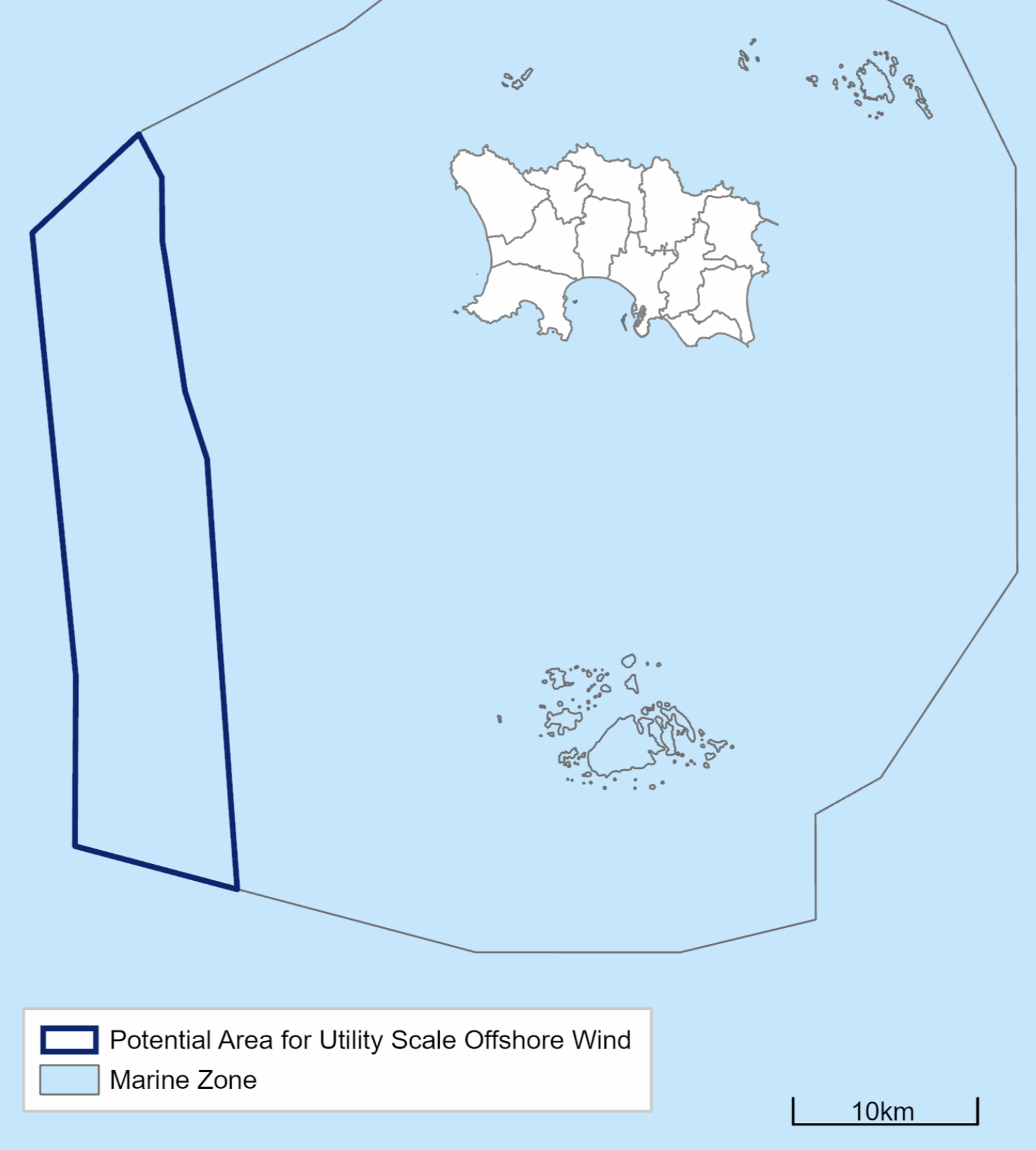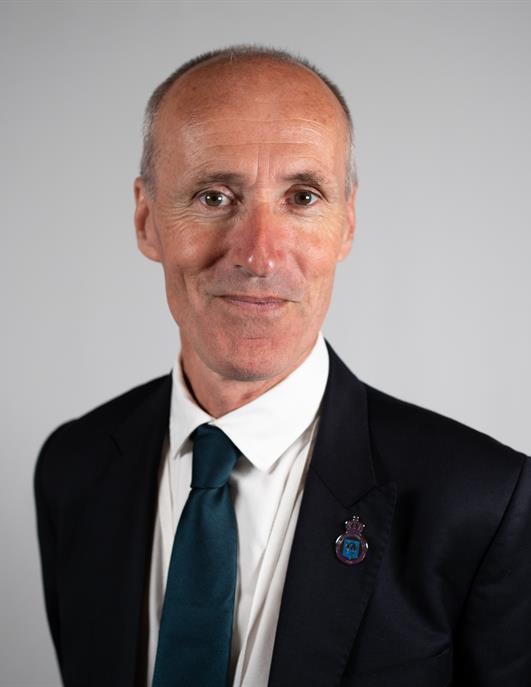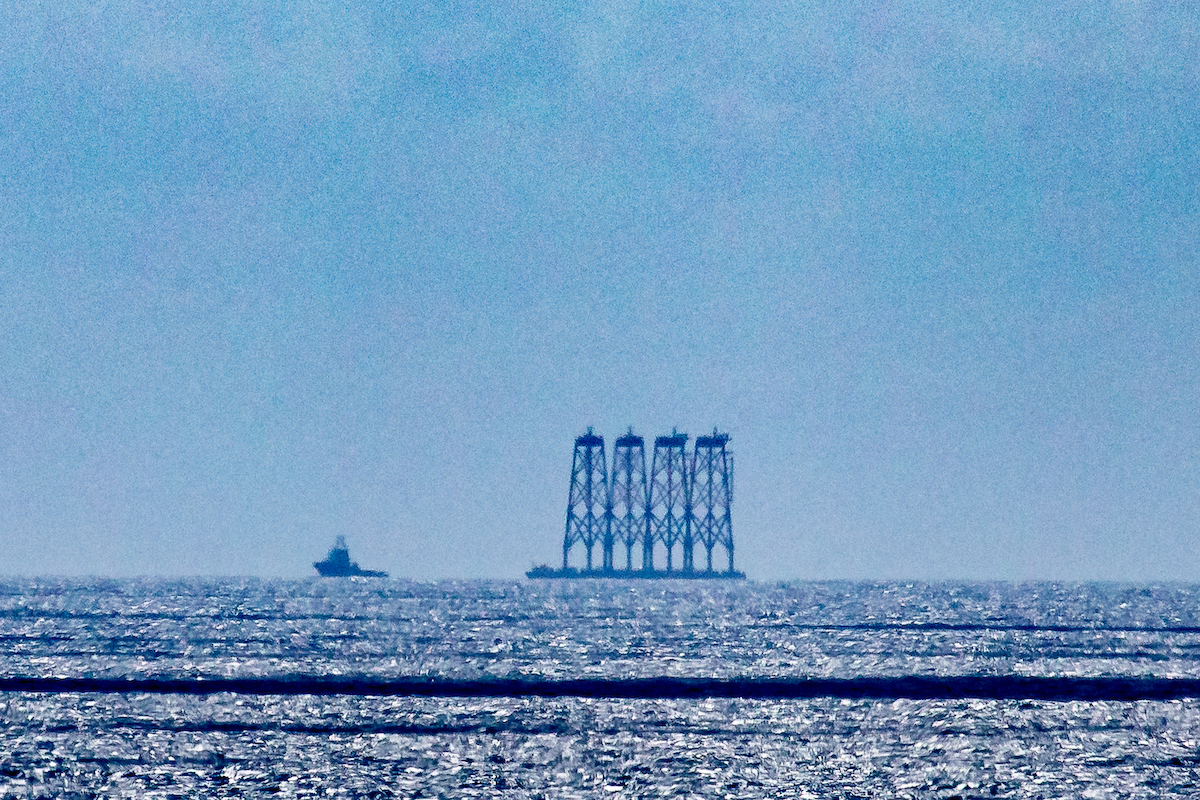


Now “is the moment to capitalise on” the “huge demand for renewable energy” with offshore wind farms in Jersey, according to the Environment Minister, as he revealed that the Government has already been approached by commercial operators.
At a Scrutiny hearing yesterday, Deputy Renouf suggested that the island “risks missing the boat” if Jersey does not make the most of its suitability as a location for offshore windfarms.
The Minister explained: “There is a huge demand for renewable energy in the European market and lots of money is moving in that direction. This is the moment to capitalise on that.
“To all intents and purposes, I think the demand for carbon-free energy in Europe is going to be inexhaustible in the next five or ten years. However, the money to move to invest in it is finite so if we don’t move, other people will get that money and we risk missing the boat."

Pictured: The area west of Jersey identified in the Bridging Island Plan as the best site for a wind farm.
“Other technologies will come along which will supersede [the offshore wind farms]. We are the perfect place for anchored turbines in shallow water, but technology for floating turbines is moving fast and, although it’s not yet economic, it could come become the next thing. Then other places may become better placed to exploit the resource because they might be able to come closer to shore, for example Guernsey has deep water straight offshore.
“We have a moment now and I think we need to move fast.”
Deputy Renouf also revealed that he had been approached by “commercial operators” who want to build wind-farms on the island’s shores. He suggested that this would be beneficial for the island in terms of energy supply, as well as royalties and tax incomes, plus a “significant economic opportunity” to have a base in the island to employ people to run this renewable energy supply.
When asked what “commercial operators” he was referring to, Deputy Renouf declined to “name any names” but confirmed that “we are talking about people who are running significant Jonathan Renouf-scale operations in UK territorial waters”.
He added: “We certainly anticipate speaking to France as they are building a wind farm nearby, but we also know that the UK is a world leader in offshore wind. There are also Norwegian companies that are interested, so there’s a lot of interest out there.”

Pictured: The Minister for the Environment, Deputy Jonathan Renouf.
The Environment Minister also explained that technologies have developed significant in recent years, with turbines now 15mW each instead of 8mW each. The advantage of this is that you need fewer turbines as they are more powerful, and the larger spacing leaders to less impact in terms of fishing, shipping, and birds.
Constable Mike Jackson outlined his concerns regarding the impact on the fishing industry, explaining that “there needs to be communication as to how that might be affected”.
He also suggested that Jersey’s “economic input into the maintenance of the wind farm may be limited” due to the island not having space for the large ships required.

Pictured: The recent construction of a 500-megawatt wind farm north of St Brieuc has been clearly visible from Jersey this summer.
Deputy Rob Ward was concerned that Jersey could “miss an opportunity to have a share in something really good” if the project was funded entirely by external investment, however Deputy Hilary Jeune reassured the panel that it is “very important for Jersey to have a stake in any project in some form, but this could be achieved through a number of iterations.”
Deputy Jeune added: “We’re at that stage now where we can explore what the different ways look like. We have to move forward and the next year is really going to be consolidating what that looks like in process and structure.”
However, Deputy Renouf admitted that the usual time scale for wind farms is close to ten years due to “extraordinarily difficult” processes, although he explained that the building of the actual wind farms only takes a “few years”.
Comments
Comments on this story express the views of the commentator only, not Bailiwick Publishing. We are unable to guarantee the accuracy of any of those comments.